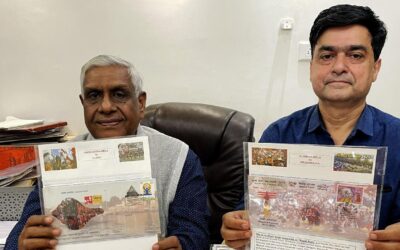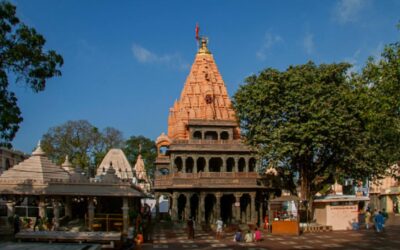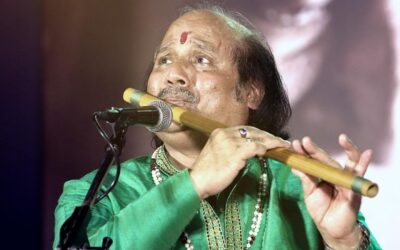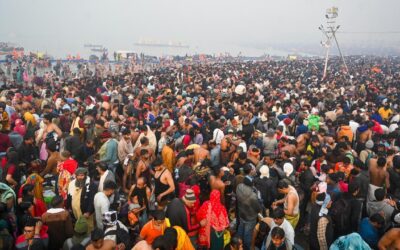Union Budget 2025: ‘Invest in infrastructure for music tourism’

[[{“value”:”
Even as India is dealing with their feelings about the recently concluded Coldplay’s India tour that showcased the concert culture in the country, Ed Sheeran has already performed in Pune and will be performing in Hyderabad on Sunday. Later this month, even world-renowned DJ Tiesto will be coming to India. All of this is after Cigarettes After Sex, Karan Aujla, AP Dhillon and even Bryan Adams and Dua Lipa have performed in the country in the last three months.
While this can be attributed to the music concert season that usually hovers between September to February, the music concert culture in India is not limited to particular months anymore, and is an all-year round calendar that only seems to be bursting at the seams and is only going to grow and test the limits of India’s infrastructure not only logistically but also online, and it is important to be prepared. It is no surprise then, that India’s music festival organisers and promoters want more from the government this year, and if PM Narendra Modi’s recent push for a ‘concert economy’ is anything to go by, this budget should definitely have something for ‘music tourism’ in India.
Reinforcing music
It is no wonder then that VG Jairam, founder of Hyperlink Brand Solutions, believes more needs to be done to promote music festivals in India. Hyperlink Brand Solutions partners with Mahindra to produce some of the most popular music festivals in Mumbai including the upcoming Mahindra Blues Festival, Mahindra Independence Rock Festival, among others.
He lists down some of his expectations:
1) Develop world-class entertainment venues
Indoor venues (5000 capacity): Create state-of-the-art multipurpose indoor entertainment arenas in key metros and smaller cities that can host concerts, sporting events, exhibitions, and conventions. Encourage PPP (Public-Private Partnership) models with leading developers, entertainment companies, and cultural institutions to ensure top-notch facilities. Equip venues with advanced audio-visual technology, eco-friendly infrastructure, and flexible configurations to cater to diverse events. Incorporate incubation spaces for local artists and talent to perform regularly.
Outdoor venues (15,000+ capacity): Develop large-scale outdoor venues (e.g., amphitheatres, open-air concert grounds, and festival parks). Ensure world-class infrastructure like parking, lodging, dining, and high-speed internet for attendees. Allocate dedicated spaces for music festivals, cultural fairs, and food festivals to draw international audiences.
2) Create a one-window clearance system
Establish a dedicated entertainment authority under each state government to streamline event permissions and eliminate the need for multiple approvals. Digitise and simplify the approval process via a centralised portal for clearances, ensuring transparency and quick turnarounds. Guarantee minimal interference from police and other government departments by issuing pre-approved guidelines for safety and compliance.
3) Foster public-private partnerships
Invite private players to invest in venue creation and event management. Offer incentives such as tax breaks, land concessions, or shared revenue models to attract private investment. Collaborate with hospitality and tourism players and hotels to create packages for entertainment-driven tourism.
4) Drive tourism and ancillary revenues
Position India as the `live entertainment hub` to attract domestic and international tourists. Promote `event tourism` by integrating entertainment with India’s rich cultural, natural, and heritage assets.
5) Invest in capacity building and employment
Create training programs for event professionals, technicians, and support staff to ensure a skilled workforce for the growing entertainment economy. Offer government-backed support for flagship events like music festivals, food fests, marathons, and art biennales that put India on the global events map.
6) Leverage technology and smart infrastructure
Introduce 5G-enabled venues with AR/VR technology for immersive entertainment experiences. Use AI-powered crowd management systems to ensure safety and smooth operations at large-scale events.
7) Economic and policy benefits
Highlight how a robust entertainment ecosystem boosts sectors like tourism, hospitality, transportation, and retail, significantly contributing to state GDP. Present case studies of cities like Singapore and Las Vegas, where entertainment-driven economies generate billions in ancillary revenues.
Promoting India`s musical heritage
When talking about music in India, it is impossible not to talk about India`s extensive musical heritage. Dr. Suvarnalata Rao, head of Indian Music, NCPA, Nariman Point, who programmes, curates and presents classical and contemporary music for the Mumbai music venue, stresses on the need for more attention towads Indian musical heritage.
She says, “As custodians of India’s musical heritage, we await the upcoming national budget with the hope that the Government will recognise and reinforce its support for the performing arts. For over five decades, our organisation and the Indian music genre have been dedicated to preserving, promoting, and propagating the rich traditions of Indian music—identifying and celebrating regional and folk expressions while nurturing the next generation of musicians. This work is not just cultural; it is a legacy that must be safeguarded for posterity.”
She adds, “A suitable and sustained government grant for musicians is essential to ensure that these traditions continue to thrive. Furthermore, the role of private patronage remains crucial. Companies and corporates that support the performing arts should be encouraged through greater incentives, fostering a culture of generosity and long-term investment in the arts. Considerate subsidies for artistes, as well as reduced taxation for arts organisations, would be invaluable steps towards strengthening our creative ecosystem.”
Boosting concert economy
With the city experiencing some of its biggest gigs in the last few months, Deepak Chaudhary, founder & MD of EVA Live, which recently produced the Bryan Adams India tour, Arijit Singh`s and is all set to host Tiesto this February says India’s live music and entertainment industry is at an inflection point. “This budget presents a real opportunity to take it to the next level. A reduction in GST on live event tickets would be a game-changer, making concerts and festivals more accessible to a wider audience while also boosting the overall industry. Independent artists and event organizers need more support, especially in terms of tax relief on venue rentals and production costs, so they can continue driving creativity and innovation in the space.”
The fact that PM Modi recently spoke about the immense potential of India’s ‘concert economy,’ referencing how international acts like Coldplay performing in Mumbai and Ahmedabad highlight the country’s appeal as a major global music destination, makes it the best time to grow India`s concert. He explains, “He rightly pointed out that India’s rich music and cultural heritage, combined with a massive youth demographic, makes it an ideal market for the growth of live entertainment. But to truly capitalise on this, we need more investment in infrastructure—financial aid for music venues, recording studios, and performance spaces would go a long way in strengthening the ecosystem. Government-backed grants for music festivals that help Indian artists break into the international scene are also crucial.”
“India has the talent, the audience, and the appetite for world-class music experiences. What’s missing is a stronger push to support music education and skill development. Funding for music programmes in schools and structured training for artists and technicians will ensure the next generation is ready to take Indian music to global stages. If the budget prioritises these areas, we’re looking at an era where India is not just hosting major concerts but creating a stronger foundation for the entire industry to thrive,” he adds.
As Team Innovation produced Karan Aujla`s much-anticipated India tour in December across the country, Mohit Bijlani, co-founder, says, “Increased allocation for infrastructure development projects, such as roads, railways, and airports, has significant implications for our industry. Improved infrastructure can boost tourism in various regions, creating a favourable environment for live music events. As more tourists flock to different locales, the demand for concerts and festivals will likely rise, presenting a wealth of opportunities for music promoters to organise and profit from live performances.”
Additionally, Bijlani believes the government`s focus on enhancing the entertainment and tourism sectors will play a pivotal role in the live entertainment space. “The implementation of tax incentives and the streamlining of licensing procedures could make it easier for us to navigate the regulatory landscape. Support for cultural events can also result in increased visibility for our work, allowing us to showcase emerging talent and diverse musical forms. It’s clear that a nurturing environment can help elevate the music scene, encouraging innovation and creativity within our community.”
Another promising aspect the Indian music promoter believes is the emphasis on skill development initiatives. He explains, “Programmes aimed at nurturing talent in key areas such as sound engineering, event management, and music production can contribute significantly to building a more skilled workforce in the music and entertainment industry. As promoters, having access to skilled professionals enhances the quality of the events we produce, ensuring that audiences enjoy high-calibre performances that can build our reputations and attract larger crowds.”
The government`s measures to support Micro, Small, and Medium Enterprises (MSMEs) in the entertainment sector can provide vital assistance to smaller promoters like him, says Bijlani. “By facilitating easier access to credit and government contracts, we can better navigate the financial challenges often associated with organising events. This support could empower us to expand our operations and take on more ambitious projects, ultimately enriching the live music ecosystem in our country,” he suggests.
Lastly, Bijlani says he sees tremendous potential in the government`s emphasis on boosting the digital economy. He explains, “Initiatives aimed at promoting digital platforms can benefit online music services, resulting in alternative revenue streams for both artists and promoters. As more audiences turn to digital consumption of music, leveraging online platforms can enhance our reach and engagement, making it easier to connect with fans and increase the financial viability of our events.”
“While the potential benefits are significant, I recognise that the real impact of these initiatives will depend on the final budget allocations and policy decisions made by the government. I remain hopeful that these measures will provide us with the necessary support to thrive in an evolving entertainment landscape, ultimately fostering a vibrant and dynamic music industry in India,” he adds.
Coming off producing Punjabi music sensation AP Dhillon`s concerts in India, Aman Kumar, co-founder of White Fox India, says the government should give certain subsidies for people who are putting their effort into building the infrastructure that`s very important. He explains, “Park some budget towards it and give it to the state government to build some arenas and facilities for live events. More than that I also feel that taxation should be relaxed a bit. We have 5 per cent on F&B, we should have either 0 per cent or 5 per cent tax on ticket sales. This will help us manage the cash flow well. We can pass on that margin to the people, which means we can get more people to enjoy the show. This will give a big boost to the country`s economy, which is very important for tourism and the economy to have certain kinds of entertainment.”
“}]]
Search
Recent
- Ferrari, Porsche, Range Rover among 30 luxury cars seized in Bengaluru over unpaid dues
- CBI names Bangalore University, JNU professors in NAAC bribery case FIR
- Referee kicked in chest as Maharashtra Kesari wrestling bouts turn ugly
- Suryakumar Yadav, Shivam Dube named in Mumbai’s Ranji quarters against Haryana
- These philatelists have preserved rare stamps on Maha Kumbh, Simhastha Mela





